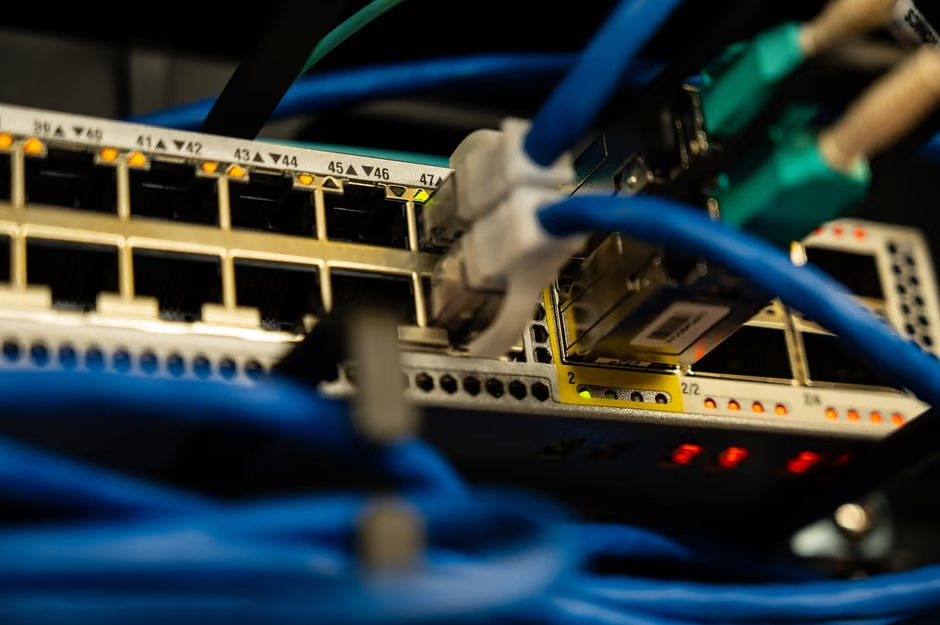For businesses and homeowners alike, the quality of an internet connection plays a huge role in productivity, communication, and overall digital experience. Whether it’s video conferencing, streaming, online collaboration, or running security systems, the right internet provider directly impacts performance. Choosing the wrong one can lead to downtime, frustration, and long-term inefficiencies.
When evaluating internet providers, it’s important to look beyond pricing and data limits. Security and scalability are just as important, if not more, when building a connection that supports both current needs and future growth.

Start with Understanding Your Current and Future Needs
Before comparing providers, assess your actual internet usage. How many users or devices are typically online at once? Do you rely heavily on cloud-based platforms or remote work? Is high-speed upload just as important as download?
Some providers market high-speed plans that look appealing at a glance, but their network might not handle demand well during peak hours. Latency issues, signal interruptions, and bandwidth throttling can sabotage even the most expensive plan.
Businesses especially need to think ahead. If your operations or workforce expand, will your internet plan support the added strain? It’s far more efficient to choose a provider who can scale with your growth than to switch later.
Assessing Speed vs. Reliability
Fast download speeds are often used as a major selling point, but speed means little without consistent reliability. Internet downtime doesn’t just disrupt browsing; it can halt revenue-generating activity. Always evaluate historical uptime records, service guarantees, and real user feedback. One of the most useful tools during this stage is a Ferndale internet speed comparison by provider, which can give you a clearer idea of which ISPs are actually delivering advertised speeds. These comparisons factor in performance across different regions and times of day, offering a more realistic view than marketing materials alone.
Another consideration is symmetrical speed. If you’re uploading large files or using video conferencing daily, upload speeds matter just as much. Look for providers who are transparent about both.
After identifying your current baseline, consider whether your current provider meets your expectations. If not, the data from the speed comparison might highlight a better alternative.
Security Should Never Be an Afterthought
While it’s tempting to focus on pricing or bandwidth, security features should weigh heavily into your decision. Internet service providers that fail to implement adequate encryption or DDoS protection leave your network open to serious risks.
If your work involves customer data, medical records, financial transactions, or intellectual property, the risks of a weak network could be catastrophic. Ask potential providers if they offer secure VPN compatibility, automatic updates to firmware, and advanced firewalls. These aren’t extras, but must-haves for digital safety.
Managed service providers may also offer built-in monitoring tools to detect suspicious activity early. The peace of mind that comes from knowing you have layered security is worth any marginal cost increase.
Customer Support Makes a Noticeable Difference
When something goes wrong, how quickly can you speak to someone with the authority to fix it? Not every provider offers responsive support. Some routes you through lengthy call center chains while outages continue for hours.
Before signing up, test their customer support. Call their line and ask questions about their service policies. Check whether support is 24/7, whether live chat is available, and how they handle emergency outages.
Reliable service is about how quickly problems are resolved when they occur. That responsiveness often sets average providers apart from the exceptional ones.
Evaluate Equipment and Setup Transparency
Some providers offer free installation or bundle their equipment with the plan, but it’s worth asking about long-term terms. Is the modem leased or owned? Can you use your own router for greater control? Are there hidden fees for activation, termination, or firmware upgrades?
Transparency at the start of the contract protects you from frustrating surprises months later. Be cautious of deals that offer super-low introductory rates that double after a few billing cycles.
Read the fine print, ask specific questions, and check independent reviews to see whether other customers encountered billing confusion or misleading contract details.
The Role of Scalability in a Long-Term Internet Strategy
As your business or home network evolves, so should your internet service. Whether you’re moving offices, adding connected devices, or supporting remote workers, scalability matters. Can your provider upgrade your plan instantly? Will you need new hardware if your speed requirements increase?
Look for ISPs that have flexible packages and are willing to grow with you. Ask about their future network infrastructure plans in your area. Providers who invest in local fiber upgrades or new data centers may be more prepared to offer higher-capacity solutions when you need them.
Community Reputation and Reviews
Word of mouth still matters in the tech world. Whether you’re in Ferndale or a rural town nearby, community reputation offers valuable insight. Local forums, online review sites, and even social media groups can tell you how each provider treats their customers.
Pay attention to whether complaints are about the same recurring issues. Dropped service, delayed repair times, unclear billing, or lack of local support may point to bigger operational concerns.
By cross-referencing reviews with actual speed tests and contract terms, you’ll build a more complete and honest picture of each provider’s strengths and weaknesses.
Environmental Considerations and Infrastructure
Though less commonly discussed, some internet providers are beginning to shift toward more sustainable practices. If your organization prioritizes environmental responsibility, ask whether the ISP powers its infrastructure with renewable energy or contributes to green technology initiatives.
Providers with strong infrastructure can offer better reliability and lower latency. Fiber-optic networks, for example, are more durable and capable of supporting high-speed data for years to come. Choosing a provider with strong infrastructure is a long-term investment in both performance and sustainability.

Choosing an internet provider is a strategic decision that extends beyond monthly costs or advertised speeds. When evaluating your options, focus on long-term security, consistent reliability, equipment transparency, and the ability to grow with your changing demands.
A provider that understands both your current bandwidth needs and your future ambitions can help you stay competitive, protected, and connected. With the right questions, tools, and comparisons in hand, you can avoid frustrating compromises and instead create a robust internet setup that truly supports your goals.
Let each criterion, speed, support, security, and scalability, guide you toward a smarter decision that won’t just serve your internet needs today but will keep you covered as your digital demands grow.








